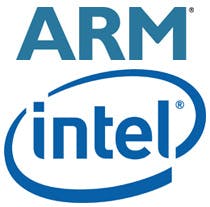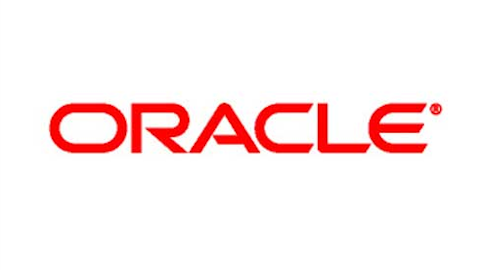One of the largest investing stories over the last several years is the decline of the PC and the rise of mobile computing. One of the companies with the most to lose is Intel Corporation (NASDAQ:INTC) which controls 85.2% of the PC microprocessor market and receives 64% of its revenues from that sector (J.P. Morgan). Furthermore, Intel Corporation (NASDAQ:INTC) made a large bet on Ultrabooks that hasn’t panned out yet, and likely never will.
However, this is all old news, in fact even the capabilities of Intel’s new Haswell processors and next-generation Atom processors and what that may mean for Intel Corporation (NASDAQ:INTC) and ARM Holdings plc (ADR) (NASDAQ:ARMH) is old news. Intel’s stock has risen substantially, while ARM Holdings plc (ADR) (NASDAQ:ARMH)’s has fallen.
However, this change has not been as big as some analysts argue. A few even argue that Intel will eliminate the ARM Holdings plc (ADR) (NASDAQ:ARMH)’s architecture’s like it did PowerPC. The key point here is that the success that Intel has happened because of its technological edge. Over the last several years, Intel Corporation (NASDAQ:INTC) dumped billions of dollars per year into researching ever better microprocessors and performance has risen proportionality. They managed to out-research IBM, which is quite a feat, and may well out innovate ARM Holdings plc (ADR) (NASDAQ:ARMH). However, the PC and mobile sectors do not work the same way.
How will ARM and Intel compete?
The historical key in PC’s has been strong demand for processing power. Consumers will pay to use their PC’s in computationally complex ways. The demand for performance in the mobile market is much smaller. Consumers just don’t push the envelope as far. This is precisely why ARM has done so well. It’s true that consumers are willing to pay for extra performance in the form of longer battery, and its Intel’s solution to this problem that excited people so much. However, how much battery life does someone really need? Again, once we get all-day battery life, we’ll be hitting diminishing returns pretty hard. We will soon hit that point.
So if Intel Corporation (NASDAQ:INTC) and ARM Holdings plc (ADR) (NASDAQ:ARMH) designs are both powerful enough and efficient for most users, how will they compete? There is only one logical answer — Price. Herein lies the problem for Intel. Historically, it has always been the more expensive chip producer. It has focused on out-performing its competitors, while letting them under-price it. However, if it wants to compete in the mobile space long-term. It simply can’t do that. It is already heading in that direction. Its new processors are substantially cheaper than previous iterations. Furthermore, most of the potential smartphone growth is in the developing world in places such as India and Brazil.. These consumers there don’t already have a smartphone because they are poor, and poor consumers are more responsive to price than wealthier ones.
What does this mean for Intel
No matter how you slice it, if Intel Corporation (NASDAQ:INTC) and ARM Holdings plc (ADR) (NASDAQ:ARMH) enter a price war, this will cut into both companies’ margins. Intel simply won’t be able to keep them around 60%. They are already starting to fall, going from 64% to 56.2% (ft.com). This will likely have two main outcomes. 1) It will cause downward pressure on Intel’s investment and hence its ability to create better chips than its competitors. 2) It will reduce Intel’s profits, and hence its ability to return value to shareholders. Intel will likely remain profitable, but it won’t have the moat it had.
Potentially better opportunities
Since we’re looking at was is gearing up to be a fiercely competitive fight in the microprocessor market, the products will inexorably get better and likely get cheaper. This will cut into Intel’s and ARM’s margins, but it will also create a better, cheaper product for the consumers. Many other companies will directly benefit from this.
The most obvious one is Apple Inc. (NASDAQ:AAPL). It operates precisely in the high-end mobile market that will be the most competitive. Instead of basically being stuck with ARM chips, it will be able to choose between Intel and ARM chips. Which one it chooses will have a major effect on that those companies, but Apple Inc. (NASDAQ:AAPL) wins either way. It can offer a better product without having to raise the price at all.
Another slightly obvious one is Google Inc (NASDAQ:GOOG). It benefits in a multitude of different ways. First, its able to produce better quality and less expensive products through its Motorola Mobility and Nexus divisions. Furthermore, and more importantly for its bottom line, these chips will benefit consumers worldwide causing many of them to get online sooner and spend more time there. This feeds straight into Google Inc (NASDAQ:GOOG)’s advertising business, and thereby make money hand-over-fist.
Other companies such as HTC and Samsung will also benefit a great deal from this competition for similar reasons. Sadly, they are not listed on U.S. exchanges which makes investing in them riskier. To wrap things up, Intel Corporation (NASDAQ:INTC) and ARM Holdings plc (ADR) (NASDAQ:ARMH) are entering into what is essentially a zero-sum game in the mobile space. This will cause both of their margins to shrink. However, no matter how that fights ends up, the firms who buy their products will be better off, and so it might make sense to invest in those companies instead.
The article Intel and ARM Entering a Price War? originally appeared on Fool.com and is written by Paul Sangrey.
Paul Sangrey has no position in any stocks mentioned. The Motley Fool recommends Apple, Google, and Intel. The Motley Fool owns shares of Apple, Google, and Intel. Paul is a member of The Motley Fool Blog Network — entries represent the personal opinion of the blogger and are not formally edited.
Copyright © 1995 – 2013 The Motley Fool, LLC. All rights reserved. The Motley Fool has a disclosure policy.







